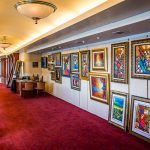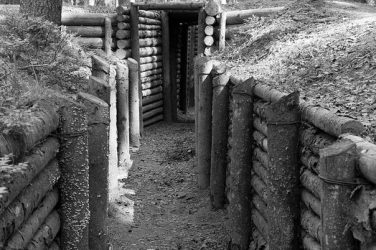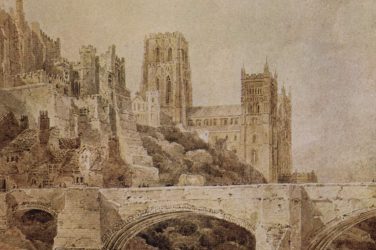Andrea Alonso Ramos explores the feelings after you have finished a degree and exams – what comes after? How do young Europeans deal with the vacuous post-exam feeling?
And then I was done with exams. Even though I still had to write my dissertation, the overall feeling was as if my master’s degree was already over. I had just said goodbye to long nights of no sleep, days of work, worry and much-needed breaks to cry, laugh nervously and eat. I had been dreaming of that moment for months and I thought it was going to feel much better that it actually felt. Rather, all I could think about was, now, what?
When I first started my master’s degree, I believed I was going to leave with a clear mind, the future would not seem as scary and I, well, I was going to be an expert in international conflict, European matters and governance, among others.
What a fool! Instead, I found myself with a mind full of thoughts and even some whispers here and there, the future remained just as intimidating as before (if not even more) and I, well, I was the master of absolutely nothing. Now, what?
As an attempt to understand what was happening, I started recapitulating everything I had experienced and learnt the past ten months. Come on, it was the most challenging year of my life, I worked as hard as my mind and body allowed me to and, consequently, I was obtaining results I would have never even dared to dream about. However, the feeling after being done with exams still haunted me, and I could not help but to keep asking myself “now, what? I reflected for days, and I did not come up with a conclusion until I had held enough conversations with friends (and not precisely friends) and watched the news, night after night, during a determined—and revealing—period of time.
I found myself with a mind full of thoughts and even some whispers here and there, the future remained just as intimidating as before (if not even more) and I, well, I was the master of absolutely nothing. Now, what?
I had it all wrong. I had it all wrong when I first started my master’s degree. In September, I was looking for answers; I thought that if I studied enough, if I worked enough, I would figure everything out. Nonetheless, all I had in June were mainly questions and, even though I had broken my back studying, it seemed as if I was too little or the world too big for me to be an expert in anything, in fact, I was not.
Suddenly, I understood. This whole process was not about being taught answers. How easy –and indoctrinating– that would had been! On the contrary, I learnt that questions are just as important as answers. Well-thought questions lead to needed answers, solutions and policies. We need questions.
How long are we going to keep letting human beings drown in the Mediterranean? What is so attractive about populist discourse and what can we learn from it? What’s the future of the EU and why do the European youth keep asking themselves “now, what”?
Questions, questions, questions!

Formulating (good) questions requires the act of questioning. You must be able to question what you are told, suggested and even taught. Oh, and whatever is presented as an unquestionable truth or dogma, well, that is what you should question most. This practice is also known as ‘critical thinking’ and yes, it is not a myth, it is not only something you write down on your CV under the ‘skills’ section. I realised that conversing with friends, classmates, professors or random people at a pub, had helped me develop my own critical thinking and that, while watching the news, I was putting it into practice. In fact, that was what I had been doing all this time in my essays and, indeed, that was what this was all about; questioning, interrogating, thinking critically!
At the time I was in between this reflection, philosophising in the most genuine Hamletian style “to be, or not to be, that is the question”, I bumped into a little sign in a random street in London that read “the more you read, the less you know”. If there is something I had done this year was to read. A lot. And I found myself partially agreeing with those words. I say ‘partially’ because there is a variant of this same quote that I personally prefer: “the more I learn, the more I realise how much I don’t know”. That was exactly what had happened to me. How would I then dare to call myself a master of absolutely anything when all I had learnt and read this year had uncovered a world of infinite ideas and accounts I was possibly never going to be able to cope with?

Now, I understand. There is not a set of knowledge that will make you an expert in anything. There will always be something that can be added, challenged or improved. Even if you just absolutely agree with an author’s account, you must give a critical and well-thought explanation of why you agree. This year, I had been reading and attending lectures not to absorb whichever author or professor had to say, but rather to use it to create, by means of a critical thinking still on progress, my own truth. And the more I kept reading and attending lectures, the more that truth evolved, transformed, or even, sometimes, slowly turned into lie; a long-standing assumption I had previously assimilated without enough contestation.
Now that I had understood… what? I had been given the tool. The tool that was going to help me live freely, do not take anything for granted, and make my voice heard. It was a power I had to keep putting into practice. In the era of fake news, manipulation and populism, we must think critically. There is always something new to read and learn, and that can be extremely frustrating. However, only by trying to cluster, compare, and examine as many ideas and accounts as possible, critical thinking becomes possible. Remember, it is all about questioning, interrogating, thinking critically! Ask your questions! Questions, more concretely, awkward questions, have the power to dismantle enduring and counterfeit assumptions, and to take down vague and populist arguments.
Cover photo: Michele Ursino , CC BY-SA 2.0 (Flickr)







